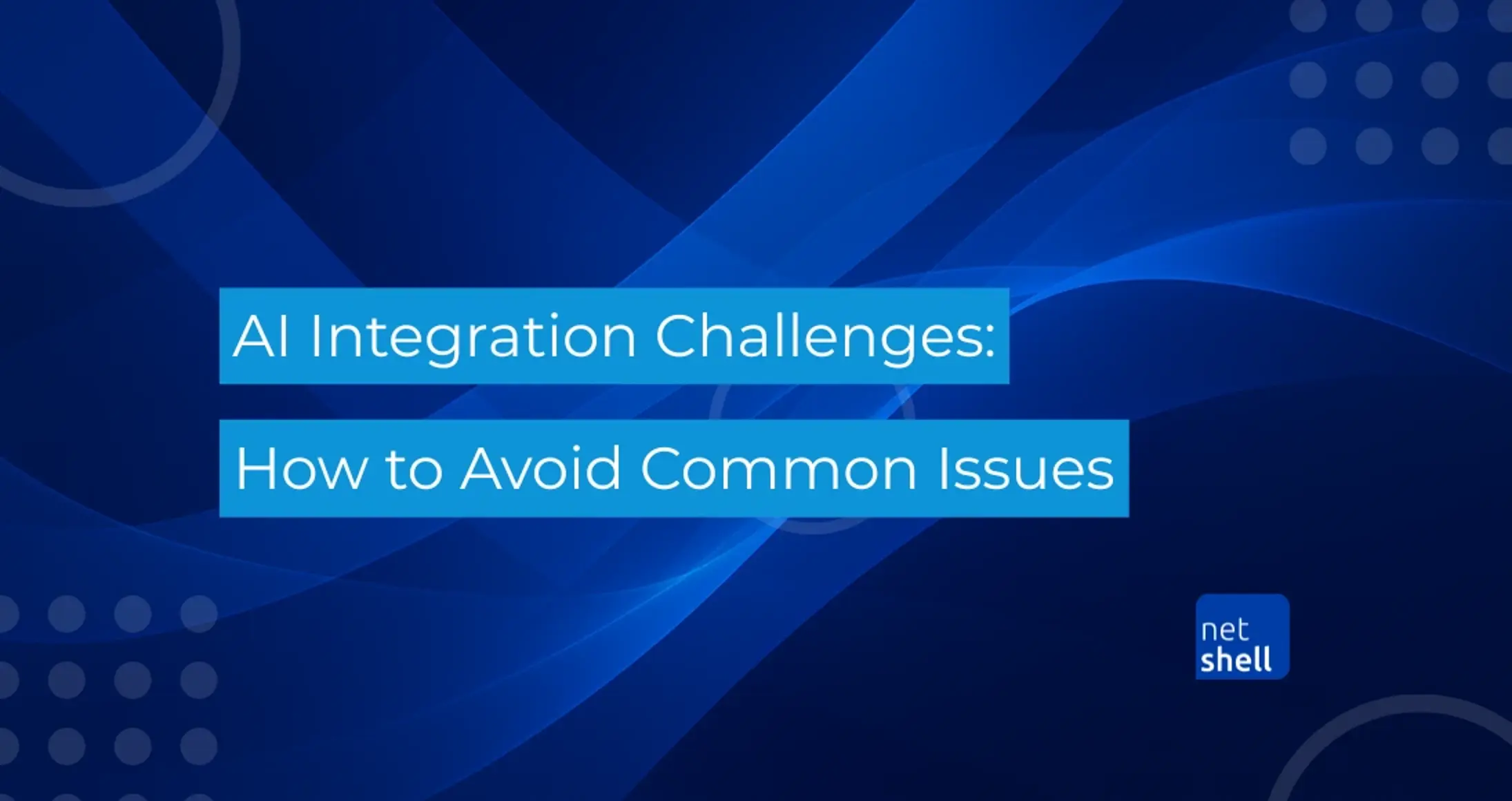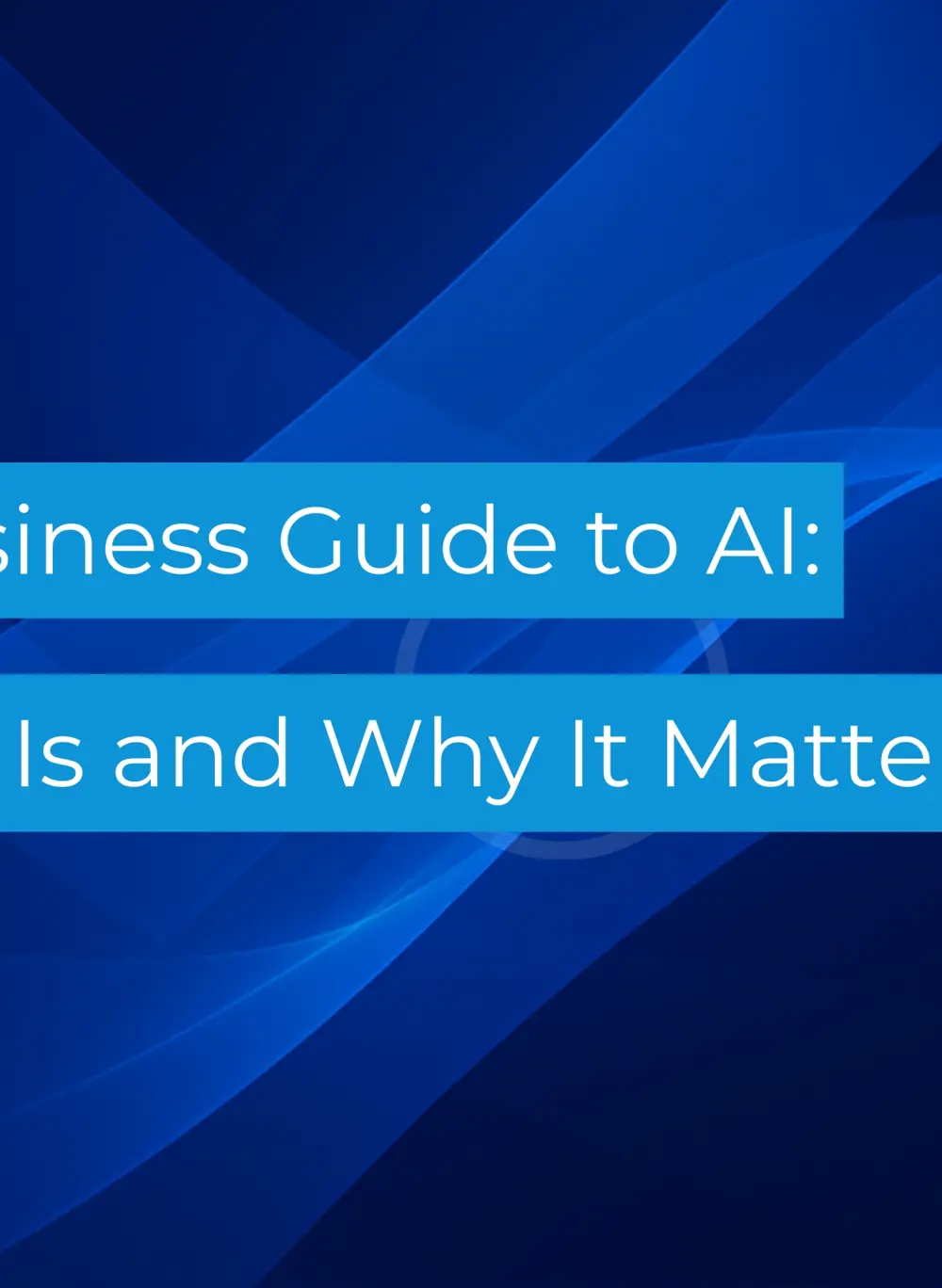Artificial Intelligence (AI) has moved from being a forward-looking idea to a practical tool that’s starting to shape how many organisations work. From automating routine tasks to improving customer experiences, AI offers real potential however, integrating it effectively isn’t always straightforward. Many organisations encounter challenges that can slow progress, stretch resources, and affect confidence in new projects.
This blogpost helps to uncover these challenges in detail and provide actionable strategies on how to avoid them.
Lack of Clear Objectives
The Challenge
A common challenge when adopting AI is beginning projects without clear goals in place. Without measurable objectives, it can be difficult to demonstrate value or understand whether an initiative is achieving its purpose. For example, a company might introduce a chatbot without fully defining the issues it should address, leading to a less effective customer experience. Similarly, using predictive analytics without identifying the decisions it is meant to inform can result in insights that are hard to act on. Even when the aim is to improve efficiency, it’s important to set clear measures of success to help assess progress and return on investment.
How to Avoid It:
- Define measurable goals: Set specific objectives such as reducing customer support response times by 30% or increasing lead conversion rates by 15%.
- Align AI with business strategy: Ensure AI supports core business priorities rather than being a standalone experiment.
- Establish KPIs: Track performance regularly against tangible metrics to evaluate success and make informed adjustments.
Poor Data Quality
The Challenge
AI systems rely on data to recognise patterns and make predictions, so the quality of that data has a major impact on performance. If the information is inaccurate, incomplete, outdated or biased, the results are likely to be unreliable and may reduce confidence in the system. For instance, a model trained on old sales data might produce inaccurate forecasts, leading to less effective business decisions. In addition customer insights based on limited data may result in less targeted marketing activity.
How To Avoid It:
- Implement robust data cleaning processes: Remove duplicates, correct errors and standardise formats before feeding data into AI models.
- Ensure diversity and representation: Use datasets that reflect the full range of customer or employee demographics to reduce bias.
- Regularly audit datasets: Check data for accuracy and relevance as well as update it as business needs and external factors evolve.
Ignoring Ethical and Compliance Considerations
The Challenge
AI systems can sometimes introduce bias, raise privacy concerns or fall short of regulatory requirements, which can create legal or reputational risks. For example, recruitment algorithms might unintentionally favour certain groups, automated decision-making tools could produce uneven outcomes, or customer data might be handled in ways that don’t fully align with GDPR. Organisations that overlook these issues risk damaging trust and may face regulatory or reputational consequences.
How to Avoid It:
- Establish ethical AI guidelines: Set clear rules for fairness, transparency, and accountability.
- Ensure compliance: Regularly review AI systems against local and international laws such as GDPR or sector-specific regulations.
- Monitor outputs continuously: Evaluate AI decisions for bias or unfairness and take corrective action where necessary.
Lack of Skilled Talent
The Challenge
Integrating AI effectively requires a mix of technical knowledge and an understanding of ethical considerations. A lack of the right skills can slow progress, affect quality or lead to avoidable mistakes. For instance, teams may find it difficult to configure models correctly, interpret AI outputs in a meaningful way or keep projects on schedule without sufficient in-house expertise in implementation and maintenance.
How to Avoid It:
- Develop internal expertise: Provide training to existing employees or recruit specialists in AI and data science.
- Partner with experts: Work with AI vendors or consultants to help support AI initiatives.
- Foster continuous learning: Encourage staff to keep up to date with evolving AI technologies through courses, conferences and professional networks.
Neglecting Maintenance and Monitoring
The Challenge
AI systems need ongoing attention, as their performance can decline over time if data patterns, business processes or external conditions change. For example, predictive maintenance models may become less reliable when new machinery is introduced, recommendation systems might be less effective as customer preferences evolve and fraud detection tools could miss emerging threats if they aren’t regularly updated. Without regular maintenance, the accuracy and value of AI solutions can be reduced.
How to Avoid It:
- Implement monitoring processes: Track AI performance and identify anomalies or drops in accuracy early.
- Retrain models regularly: Update AI models with new and relevant data to maintain effectiveness.
- Create feedback loops: Incorporate human oversight and user feedback to continually refine AI outputs.
Final Thoughts
AI has the potential to improve business operations, support better decision-making and offer a competitive edge. From simplifying administrative tasks to spotting market trends, personalising customer experiences and making the most of resources, AI can be applied across many areas of an organisation. However, achieving these benefits requires more than just adopting new technology, it calls for careful planning, attention to detail and a thoughtful approach to the challenges that can occur during implementation.
By setting clear objectives, organisations can ensure AI initiatives are purposeful and measurable. Using high-quality, diverse, and up-to-date data provides a solid foundation for AI performance. Paying attention to ethics and compliance helps avoid legal and reputational issues, while developing the right skills ensures projects are carried out effectively. Regular monitoring and maintenance also keep AI systems accurate, relevant and aligned with changing business needs.
AI should be seen as an ongoing journey rather than a one-off project. Organisations that approach it with foresight and a willingness to learn can not only steer clear of common challenges but also unlock longer-term growth, efficiency and innovation. With the right approach, AI can be a practical tool for creating lasting value across the business.
Looking to introduce AI into your business processes or operations but not sure how to get started?
We offer a free AI & Automation workshop to find out where your biggest challenges could turn into your quickest wins. Find out more here.




